
Browse our fun-packed, helpful plant-based articles, and delve deeper into this healthy, sustainable lifestyle!


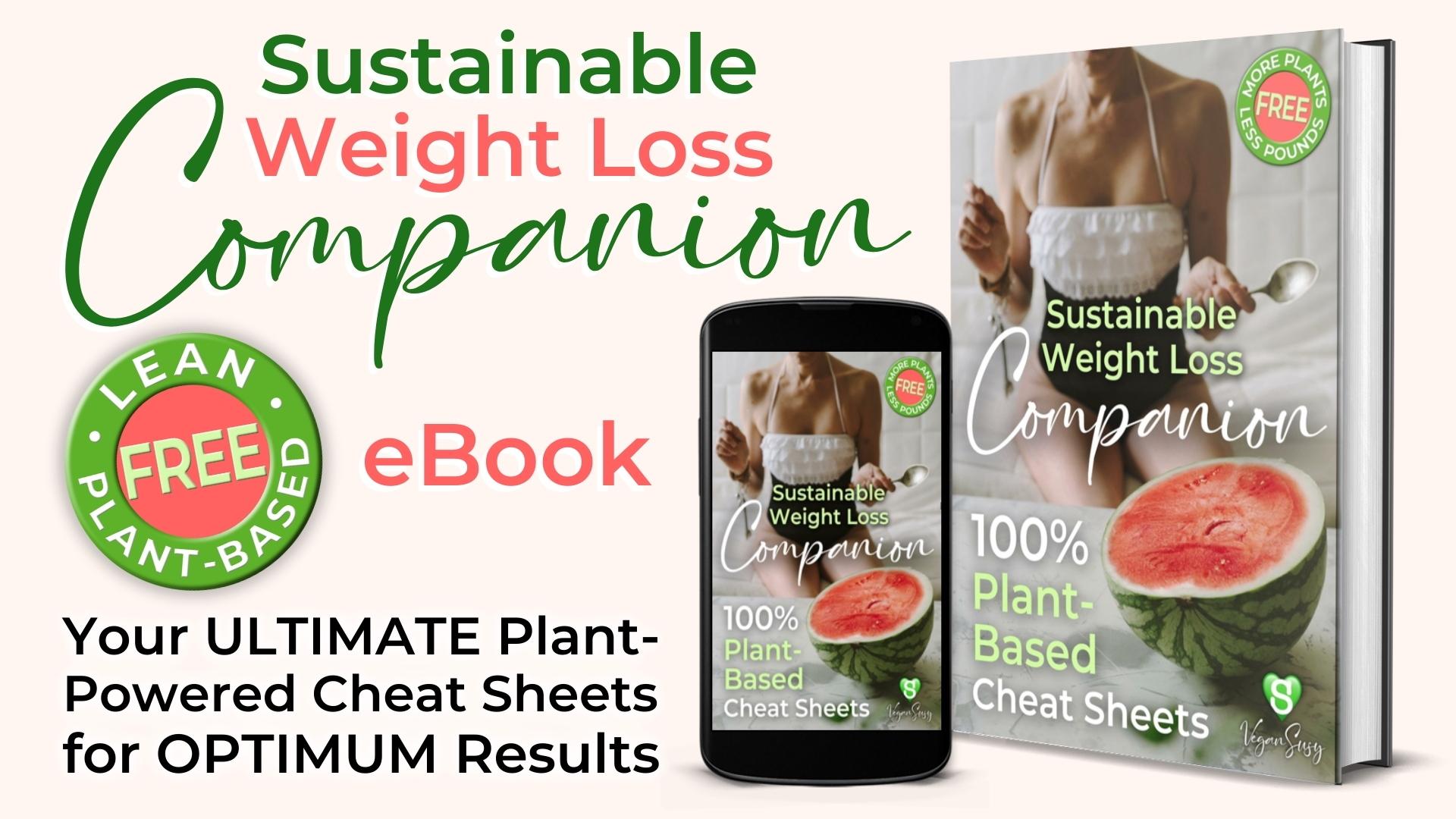

Plant-Powered Vegan Living: Overcoming Menopausal Challenges Naturally
Plant-Based Lifestyle Tips For Women
Author: Plant-Based Susy
Menopause can be a stressful part of life. Many changes occur during this time, and it may feel like your body is against you. When experiencing the painful and uncomfortable symptoms of menopause, it’s only natural to want to find a quick fix.
Many routes to menopausal symptom relief sound intimidating. These solutions range from intense therapies to hormonal drugs. If you’re someone who wants a more natural fix than loading your body with scary-sounding treatments, it’s time to consider changing your dietary choices.
Plant-based and vegan diets are generally more healthy than animal-based alternatives. It’s well known that ditching highly processed food and meat can help you avoid health scares, but did you know that filling your plates with more plants through a vegan diet can help you manage the uncomfortable symptoms of menopause and prevent weight gain?
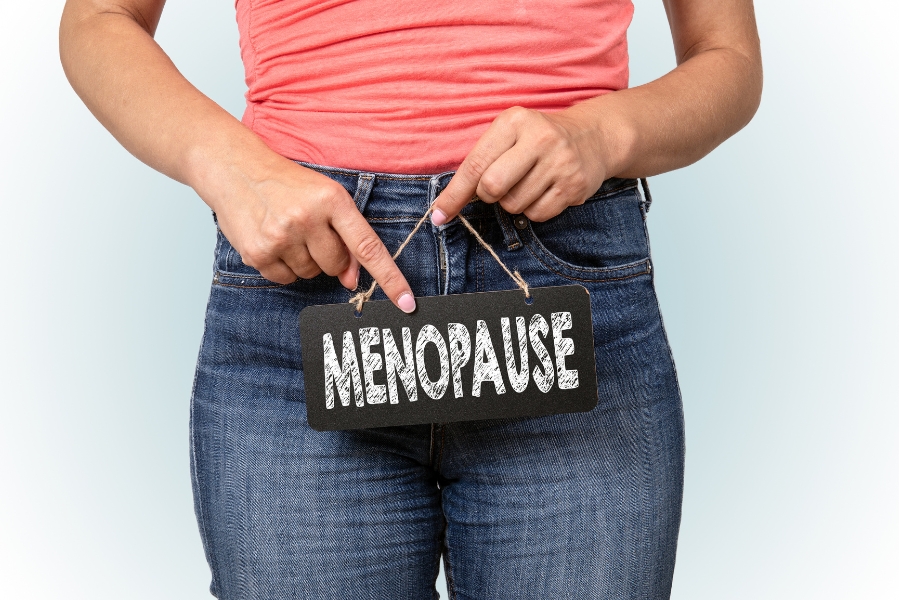
Table of Contents:
What is perimenopause and menopause?
According to the National Institute on Aging, menopause is the point in life 12 months after your last period. Perimenopause, or the menopausal transition, happens first.
Towards the end of reproductive years, ovaries start producing fewer hormones, which causes an irregular menstrual cycle. This transition to menopause typically begins between the ages of 45 and 55, but it can start as early as the mid-30s. This process lasts anywhere between 4 years and 14 years.
You can still become pregnant during perimenopause, so many people have to deal with the symptoms of birth control on top of menopausal symptoms. Once you’ve gone a year without a period, you’ll know you’ve reached menopause, and your uncomfortable symptoms should decrease, eventually going away entirely.

What are the symptoms of menopause?
There’s a long list of potential menopause symptoms, and everyone who goes through it will be affected differently. You can expect to experience irregularity in your periods. This irregularity could look like multiple months in a row without periods or periods being closer together.
More than 80% of people experience hot flashes during menopause making this one of the most common symptoms. What other things should you look out for?
Potential menopause symptoms include:
Chills
Hot flashes
Irregular periods
Vaginal dryness
Sleep problems
Night sweats
Mood changes
Weight gain
Loss of breast fullness
Thinning hair
Dry skin
Slowed metabolism
Talk with your doctor if you believe you’ve hit perimenopause and are experiencing symptoms. Tracking your symptoms and cycles in advance can be beneficial so they have more information about your experience on which to base their advice or diagnosis.
This is a natural part of life, so don’t be scared. If your symptoms have reached a point where they’re extremely difficult to deal with, turning to a medical professional can lead you to the support you need during this time.
Questions you may want to ask your doctor include:
Can I still become pregnant?
Do I need to take medication?
Should I consider hormone therapy?
How long will these symptoms last?
How can I relieve my symptoms?
Some people opt to deal with their menopausal symptoms more naturally before trying therapy and medication. One of the best options is switching to a plant-based lifestyle.
Following a vegan diet carries many benefits. It helps reduce your risk of heart disease by lowering cholesterol levels, lowering your risk of cancer, managing diabetes, and promoting weight loss. Beyond these, veganism has been linked to a decrease in menopausal symptoms.
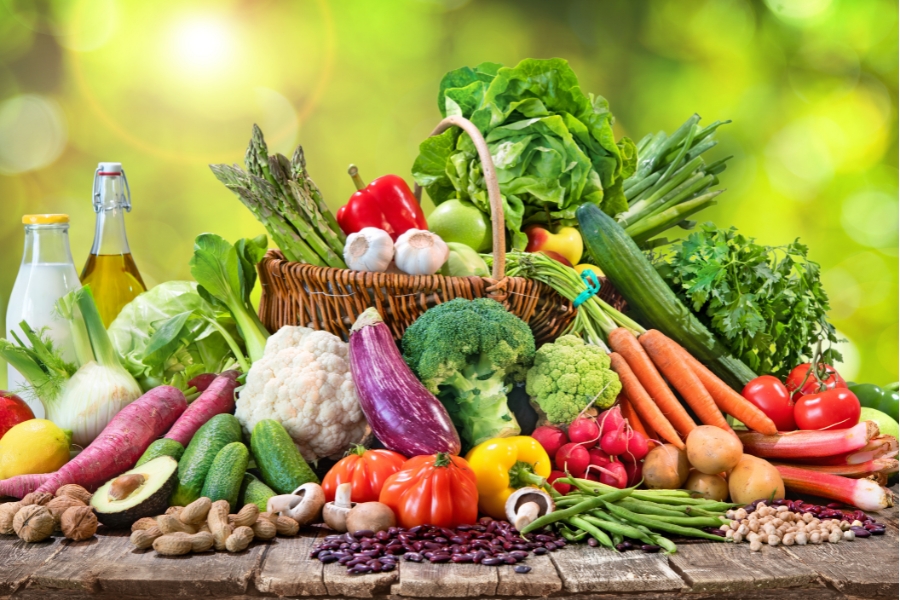
How does a vegan diet help with menopause?
If you’re looking for a natural way to manage your menopause symptoms, eating a plant-based diet can do the trick. Studies show a link between eating more clean foods like vegetables paired with fewer animal-based products and less bothersome menopausal symptoms.
It’s a good idea to give a plant-based diet an honest try to alleviate symptoms before doing something more invasive. “These new results suggest that a diet change should be considered as a first-line treatment for troublesome vasomotor symptoms, including night sweats and hot flashes,” Dr. Barnard explained in this new release.
Hot flashes are the worst, but going vegan can help
Hot flashes are a prevalent symptom of menopause and tend to be the most talked about during this season of life. Hot flashes can happen due to other medical conditions, but menopause is the most common reason for them. If you’re a woman, you will likely face them at some point in life.
During a hot flash, you suddenly feel warm in your upper body, including your face, neck, and chest. Your skin might turn red, and you may start sweating. If your body loses too much heat, you may get chills.
Hot flashes can be so intense that you have to pause tasks or activities. They last anywhere between one and five minutes and can happen anytime throughout the day. If they happen at night, you will likely be woken up from your sleep. They can lead to long-term sleep issues and disruptions. The worst part is that hot flashes can affect you for more than a decade of your life.
With this in mind, it’s easy to see why you’d want to tackle hot flashes as much as possible. Some people take medications, including antidepressants, to deal with hot flashes. Others carry around portable fans to get by. What if you could tackle hot flashes more naturally?
Diets high in fat and processed sugar can make hot flashes worse, while plant-based diets that contain soya can be highly beneficial. Lowering the amount of caffeine, hot drinks, alcohol, and spicy food you consume can help too.
According to a study from the North American Menopause Society, your diet is about as effective in reducing hot flashes as hormone replacement therapy. The best part is you don’t have to deal with the health risks of this therapy. Another study found that plant-based diets with plenty of soya reduce severe hot flashes by 88%. This same trial also found a link to weight loss.
More Plants, Less Pounds: Menopause and weight gain
Weight gain is typical as you get older. Beyond the simple changes inside our bodies, we are less likely to be active as we age.
According to the Mayo Clinic, weight gain is common a few years before menopause begins. This body change happens sometimes during the perimenopause process. As a woman goes through her 50s, she is likely to gain about 1.5 pounds per year.
Worrying about weight gain doesn’t make you superficial. Weight gain can increase your risk of health issues like Type 2 diabetes, heart and blood vessel disease, cancer, and breathing issues. We totally get the fear surrounding weight gain, and there’s nothing wrong with wanting to feel confident in your skin.

Why does menopause cause weight gain?
The hormonal changes during menopause often lead to an increase in weight around the abdomen. As we age, there is a high chance of a decrease in muscle mass, which slows the metabolism.
Genetic factors and lifestyle can also lead to weight gain. While your genes may not be in your control, your lifestyle can be. It might be time to clean up your diet, drink more water, and make sure you get enough sleep. Of course, menopausal symptoms can mess up our sleep, among other things, but what you eat is something you have complete control over.
Veganism is an excellent tool for weight loss
Veganism is an excellent tool for achieving sustainable weight loss. Vegans don’t eat dairy, eggs, meat, or fish. Instead, they’re encouraged to eat more nutritious plant-based foods, including fruits, vegetables, and plant-based proteins like tofu and chickpeas. Adding more whole foods ensures your body gets plenty of nutrient-dense meals.
With a vegan diet, you replace the foods that aren’t so good for you with healthier alternatives that tend to be lower in calories. Healthy fats, like avocados, nuts, and seeds, provide satiety. The same goes for Protein, including tofu, tempeh, and legumes.
In addition to following a plant-based lifestyle, try being mindful of snacking. Opt for nuts, fruits, vegetables, or other plant-based snacks instead of salty chips and sugary candies. Watch the portion sizes here as well.
Pairing a vegan diet with regular physical activity will make the most significant difference in weight management. Physical activity doesn’t have to mean hours at the gym or intense workouts. Try going on daily walks or go to the gym and spend 20 minutes on assisted weight machines.
Frequently Asked Questions
Menopause marks a significant change in a person’s life, and it’s only natural to have questions.
What is the difference between perimenopause and menopause?
Perimenopause happens before reaching menopause. During the transitional time before menopause, levels of estrogen start to decrease. This time can last years. Once you haven’t had a menstrual cycle in 12 months, you will know you have officially hit menopause.
Why do perimenopause and menopause happen?
Both perimenopause and menopause are completely normal parts of a woman’s reproductive cycle. Perimenopause happens when your ovaries start to produce less oestrogen (estrogen). This is natural in preparation for the body to stop releasing eggs. Perimenopause is the body’s transition into menopause when you can no longer get pregnant.
What happens during menopause?
When menopause occurs, the ovaries stop releasing eggs, and the body produces less of the hormones oestrogen (estrogen) and progesterone. Menopause symptoms follow these changes in the body. Periods also decline during this time. You will experience them less often until they no longer happen.
How does veganism prevent menopausal weight gain?
A plant-based diet is lower in calories and high in fiber, promoting satiety while boosting metabolism and reducing fat accumulation.
What are the physical symptoms of menopause?
There is quite a range of symptoms when it comes to menopause. Some people will only experience a couple, while others experience them all. There is also a difference in the severity of these symptoms from person to person.
Hot flashes are a common symptom of menopause. This is when your body has sudden feelings of hot or cold. Hot flashes tend to be felt in the face, neck, and chest. This symptom can cause other issues like poor sleep, irritability, and episodes of heavy sweating.
Other symptoms include irregular periods, chills, mood changes, and vaginal dryness. You may also experience weight gain.

How can you treat menopausal symptoms?
There is no cure for the symptoms you may face during perimenopause. They should go away once you have officially hit menopause. Some people decrease these symptoms with creams, antidepressants, birth control pills, gabapentin, and oestrogen (estrogen) therapy. However, many people succeed with a more natural approach of living a plant-based lifestyle.
How does going vegan benefit the body?
There are a ton of benefits to going vegan in addition to helping with menopause. Benefits of veganism include lowering the risk of diabetes, improving kidney function, weight loss, and lowering blood sugar levels. There is also a link to veganism and a reduction in arthritis symptoms.
Studies have found that vegan diets are linked to a 35% lower risk of prostate cancer. Living a vegan lifestyle has been linked to a reduction of risk for diseases because they’re loaded with phytochemicals. Phytochemicals strengthen the immune system and possibly slow the growth of cancer cells.
Veganism is a tried-and-true method for fuelling your body and taking care of yourself. There are many reasons to go vegan, but overall health is one of the most vital. Switching to this lifestyle is worth a try!
The Bottom Line
Many things can help with menopausal symptoms. Cutting back on alcohol and smoking can make a big difference in how you feel during this time. Getting more exercise, whether that’s walking or trying a fitness class, can also help.
While all these things are great, many people report relief in menopausal symptoms when they change to a plant-based lifestyle.
Switching to a plant-based diet can seem daunting at first, but it doesn’t have to be too much of a hassle if you take it one step at a time. You can dive right in or try making the transition slowly by cutting out and substituting one food item at a time.
Your meals can still be delicious while giving your body more of what it needs during this season of life.

💚 "Happy Plant-Based Eating & Exercising!" 💚

Plant-Based Susy
Plant-Based Nutrition Professional & Weight Loss Coach
Empower Yourself: Embark on a Delicious Fat Loss Adventure

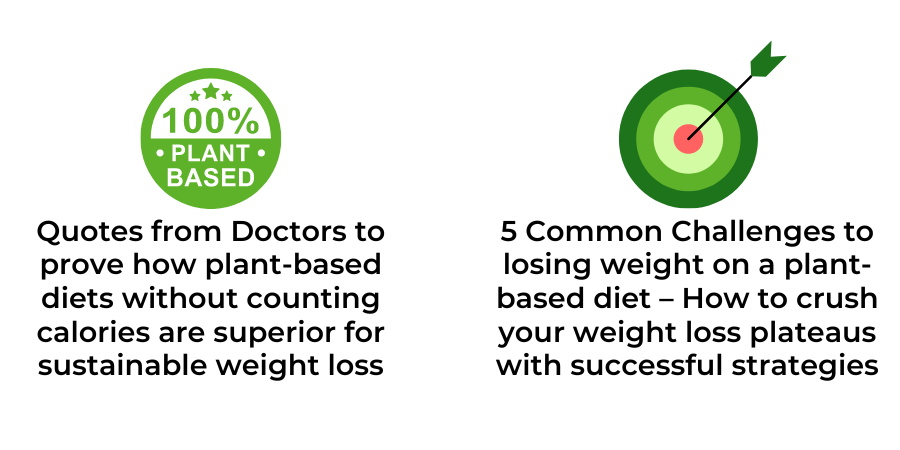
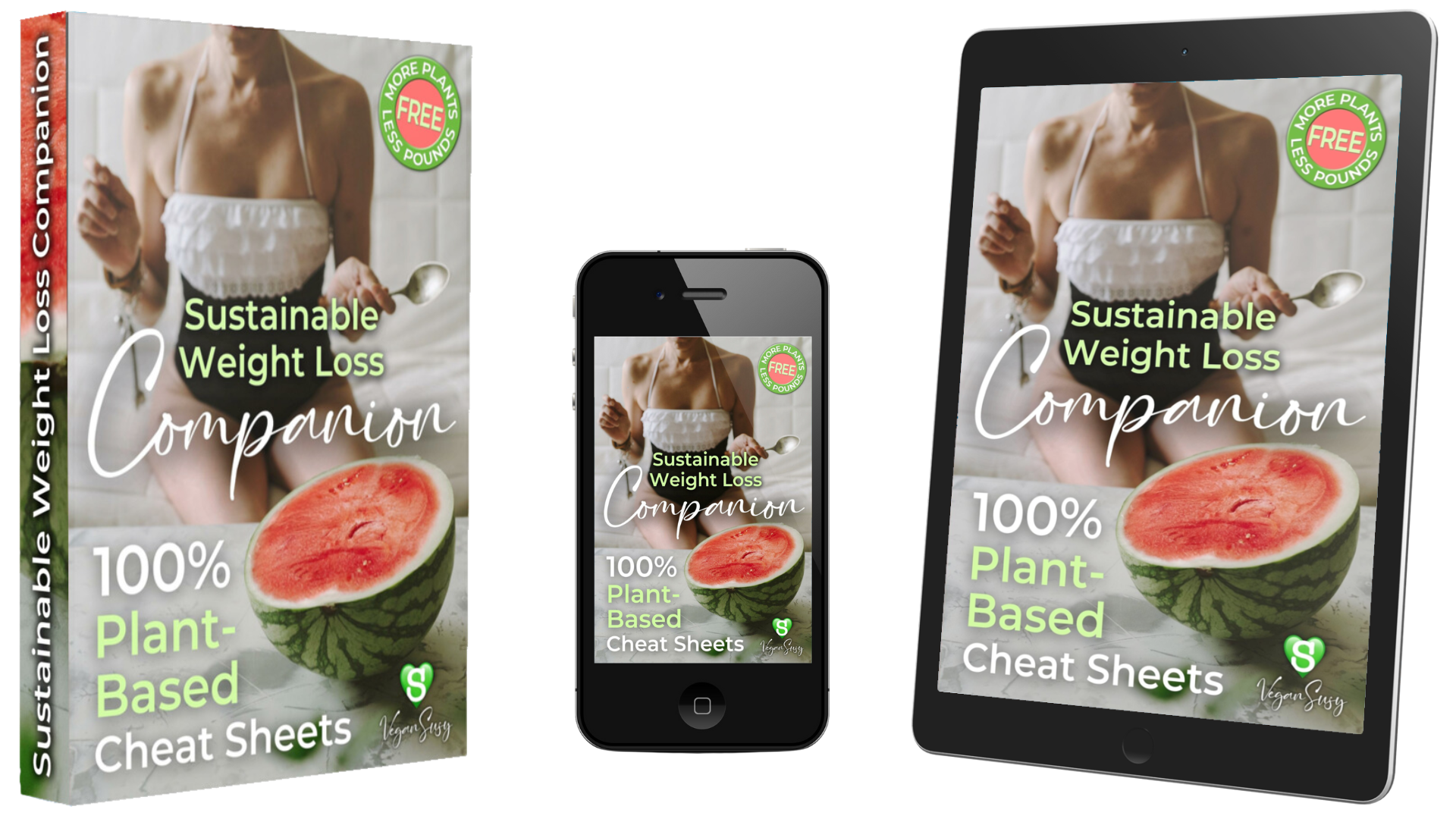
🍉 Get Ready to Jump Start Your Fitness Goals AND DISCOVER A HEALTHIER YOU!
🍉 Let's Make Your Fat Loss & Optimum Health Journey a Delicious Success Story!
🍉 Get The FREE Sustainable Weight Loss Companion eBook and CHEAT SHEETS!
More Free Resources
Unlock Your Transformation Today!
© 2025 VeganSusy Ltd. All Rights Reserved


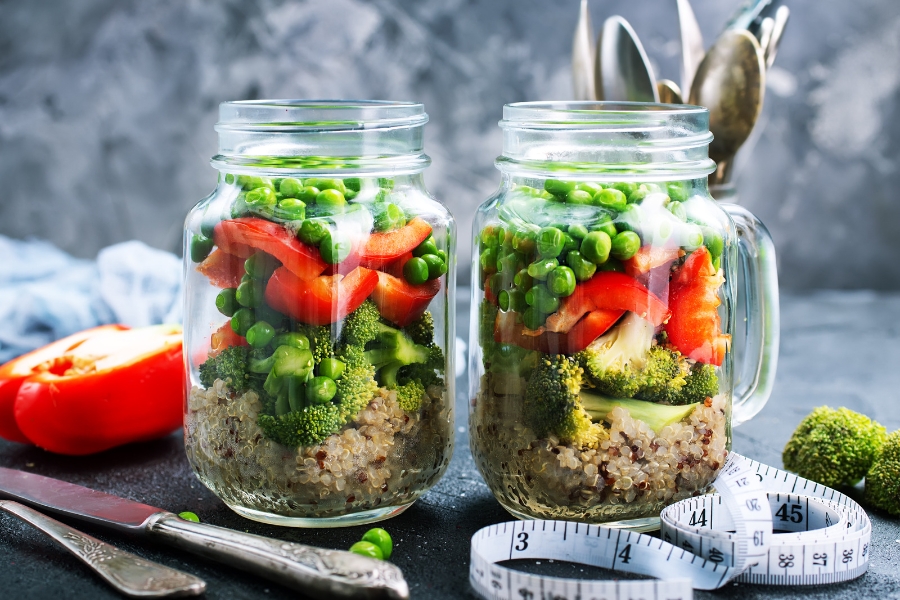
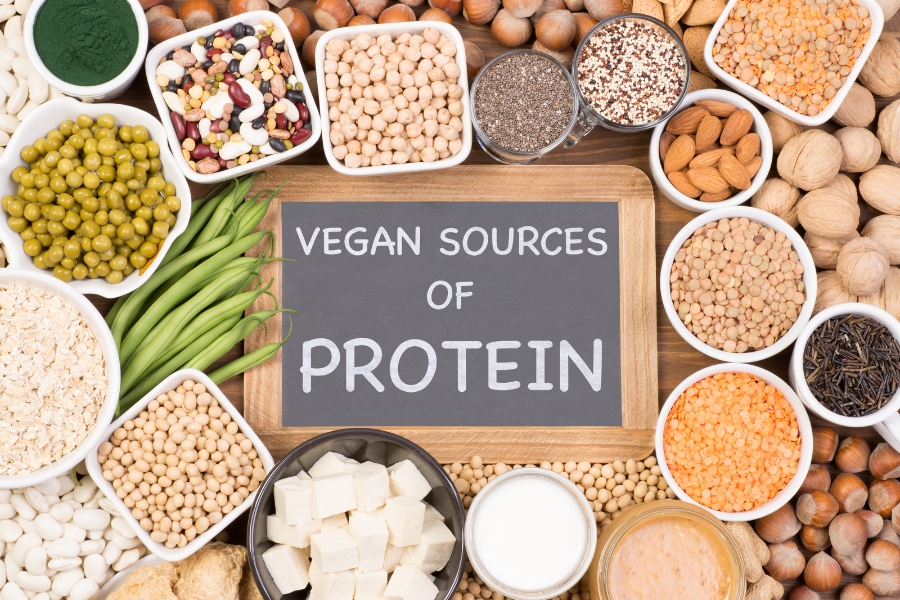

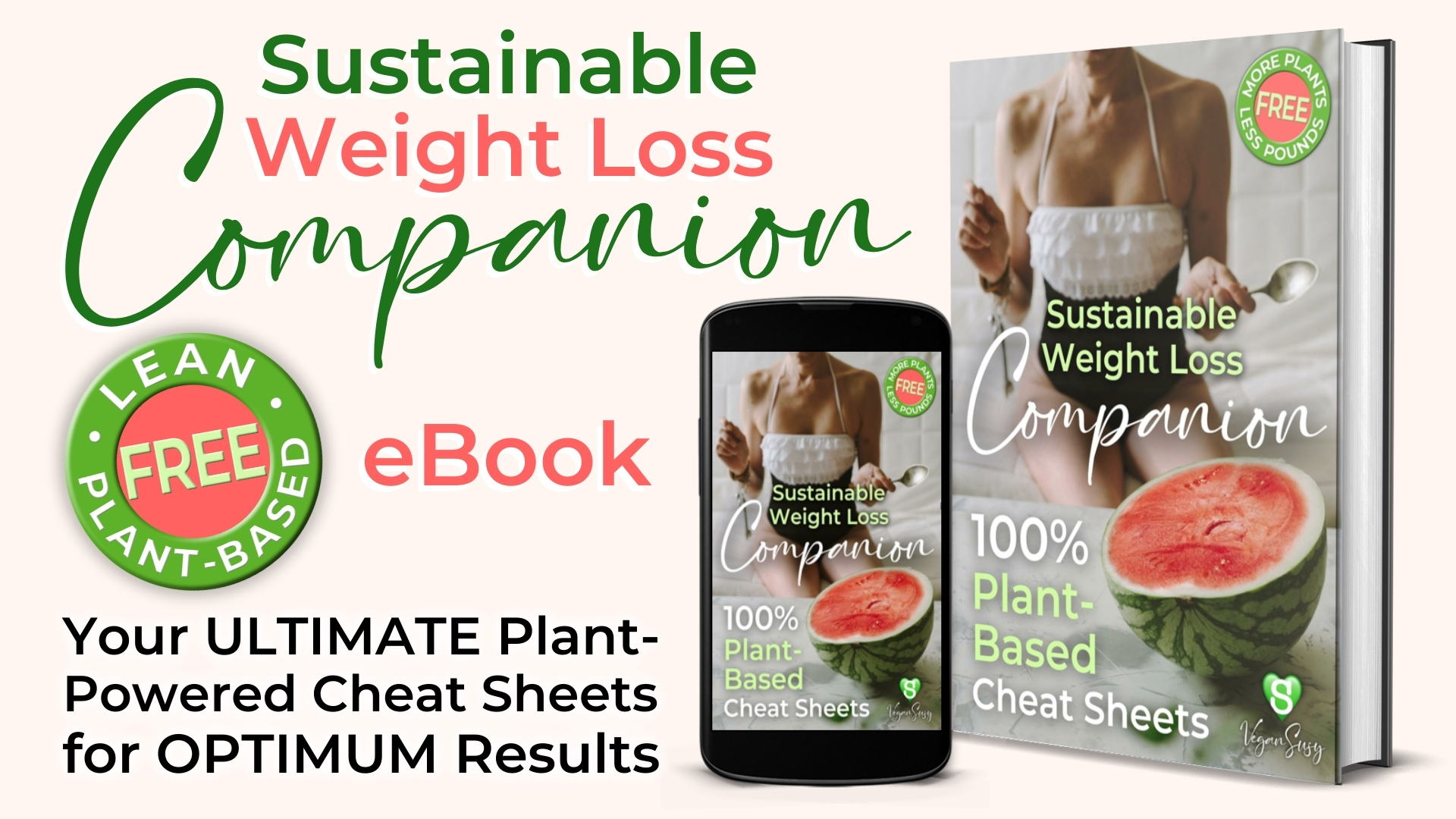





Facebook
Instagram
Youtube
Pinterest